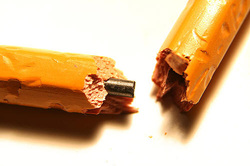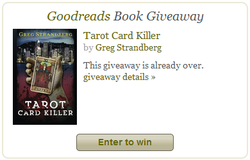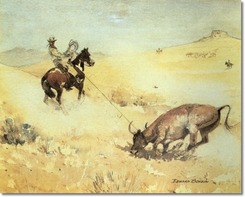
Here you can find links to different SEO, content marketing, social media marketing, self-publishing, and other various articles from the past week that I think you might like.
This week there are 21 articles. Enjoy!
 This is the fourteenth post in an ongoing series of useful and interesting content that goes up each Wednesday. Here you can find links to different SEO, content marketing, social media marketing, self-publishing, and other various articles from the past week that I think you might like. This week there are 21 articles. Enjoy! Post removed 04/03/15```Other
2 Comments
 I’m happy to continue showing-up the big-name authors this week, you know, the ones that can only complain about publishing. For you and I, two jokes of self-publishing, this doesn’t help. Who gives a fuck if Amazon or Hachette is publishing our book when that book is not selling a single damn copy? I want advice on writing, on selling, and becoming successful. I don’t want talk about unions, contracts and whether I should contact a publisher or agent or not. Fucking-A! No publisher or agent is going to be interested in me! So stop shouting to the Goddamn heavens and give me some advice that will help me! You’ll get that here today. How? We’ll take a look at some of the best-selling books on Amazon to figure out how their paragraphs are set up and if that can help you. So What is the Best Size for a Paragraph? This question is becoming harder and harder to answer and more and more people read online. As we said earlier this week, readers online demand more white space. Those articles get clicked on or read or shared more and so more are written in that format. Does the same hold true for books selling on Amazon? Let’s go through some of the bestseller Top 100 Charts on Amazon today and see if we can learn anything about how paragraphs look, as well as a few marketing tips thrown in for good measure. The Top 20 Bestselling Books on Amazon Let’s just go right for the good stuff and not mess around, huh? The best way to get to the top selling books on Amazon is to click from the main Amazon homepage over to Books. That brings you to this screen here: After that click on “Books” and you’ll get to the top sellers, here: Alright, the #1 book right now is this one: Now, if you click on that book you can see it has a ranking of…well, #1. That’s great. So let’s see why this book is the most popular in the world right now: As you can see, it looks nice. The paragraphs are broken up with dialogue, good spacing…you name it. It’s crisp and clear and not stuffy and professorial. That shit don’t make it to #1! So how about something further down the list? Let’s take a look at this book: Yep, the new Stephen King book. What does that one look like? Here it is: It just looks good, huh? Now, does your book look like that too, with smaller paragraphs and lots of white space, or is it just one long block running down most pages? Since these are the top-selling books and they look like that, shouldn’t yours look like that too? Top 20 Sci-Fi/Fantasy Books Let’s go into some genres now. Here’s the #1 book in Fantasy , A Shade of Vampire. It’s got terrible formatting, but that doesn’t stop the book from having a ranking of #17 Paid. Think I’m joking? Look at this reprehensible TOC: Obviously someone tried to use bullet points or something there. See, I can’t sell for shit, but I know 10 times more about formatting for Kindle than this author, or whoever her handlers are. Let’s continue on and see if this wildly successful book looks as bad the more we get into it: Well, it looks pretty good, pretty simple and effective. I’m not going to bullshit you – that TOC is rubbish but the rest of the book looks alright. Does any of that matter? Obviously it doesn’t matter one fucking bit because that book is selling dozens of copies a day, if not more than a hundred a day. Readers do not give a flying fuck about this book’s formatting – they like the story. Top 20 Mystery, Thriller, Suspense Books Let’s move on down the categories and look at Mysteries. This is the page: The #1 book in this category is Rain Girl and it’s got a ranking of…#1 in Paid. Obviously Fault of Our Stars just got bumped, huh? One thing that bothers the hell out of me is that this book is a preorder. If you’ll look can see both the #1 and #2 books are preorders. So us, two author hacks, are really at a disadvantage. Those books don’t even go on sale until August, and yet they’re killing our books that are already on sale. I hate this. So what does the book look like? Here it is: Well, did you think it would look bad? Looks pretty good, huh? I wonder if the author did that or the publisher or some freelance worker. It doesn’t really matter because you can see that look and you should know what you have to do to duplicate it – write shorter sentences, smaller paragraphs, and probably shorter chapters as well (this book has ‘em). Top 20 Romance Books Let’s get into the women’s categories now by taking a look at the hot romance books. Here’s the top few books: The #1 book right there is called One Lavender Ribbon and it’s got a ranking of #6 in Paid. Here’s what it looks like inside: First of all, the book has a really boring TOC. Am I the only one that gives chapters a fucking title anymore? That’s so boring it might as well be at the end of the book. Remember, your TOC can sell. Take a look at some of my old Table of Contents to get an idea of how you can show up these successful authors at their own game. Alright, here’s a page from the book: This book looks like shit, and let me tell you why.
Remember, just because someone can write a story that sells doesn’t mean they know anymore than you do. Indeed, as we’ve seen, they often know less. Long-term, the advantage belongs to you. Conclusion Stories sell. People like good stories. They like to be entertained. They don’t care all that much about formatting as we’ve seen, but if it does look good it certainly won’t hurt. And what if it looks bad? We’ve seen some boring TOC’s, bad spacing, and terrible indents. Yet those books sell more in a day than most of mine do in a year. What’s the takeaway? Story is critical, formatting and the look of your book’s inside not so much. If you have a preorder it’ll help, and if you’ve got a big name you’re set. So what about us little guys, you know, the ones the big-name authors purport to speak for but have no real advice to offer? Keep writing, show them up, and eventually supplant them from their lofty positions. They’ve become lazy. They’ve focused their attention on business matters. They’re trying to become the 1% and the new gatekeepers and the next signature you see on the rejection letter. “Meet the new boss, same as the old boss,” as The Who might sing. Mainly I feel sorry for their readers, the ones waiting for the next book and who could care less about this publishing dispute, if they even know it exists. That’s your opening. That’s your route to take them down and take their spot with good stories and superior books. Obviously they’re not concerned too much about that, so sneak right by them while they’re not looking. Hey, the market will decide, right? Isn’t it time readers decide on your book and not theirs? I think so. You Might Also LikeYep, and I got run over too. In fact, you can see me in this video, about 1:00 minute in. It all started in mid-June 2009. I’d just finished up my first year of teaching in China and was set to travel. Beginning in Hong Kong, I took the train up to Beijing, stayed a week, then moved up through Mongolia and into Russia. By that point I was on the Trans-Siberian and stopped off at the small fishing village of Listvyanka to visit Lake Baikal, the deepest freshwater lake in the world. I’d written a 3-page report on it for Mr. Hartman’s World History class my sophomore year in high school, so it was nice to see it. After that I headed to Moscow for a couple days and then to St. Petersburg for a few more. From there I flew to Berlin, slept in the airport there, then got the morning flight to Madrid and then to Pamplona, Spain. There are no hotels there and I had a big backpack and not much else. I took a bus into the center of town and then got some white clothes and red sash, which they sell from stands. Next I found a place to stow my backpack for a few Euros. Relieved of my worldly possessions, I could set to the task at hand, which was getting drunk. I just don’t think Carnival and Mardi Gras combined can hold a torch to the Festival of San Fermín. In some spots the plastic cups, wine bottles, beer cans, and other rubbish was piled up to my knees. It was a circus with people chanting in unison in this square while others jostled about and cajoled one another to do…whatever, in another. Spanish residents were walking babies in strollers next to drunk frat boys from God knows where. And there I was in the middle of it all, becoming more bleary and oblivious by the minute. I woke up on some grass somewhere, oh…about 7:30 AM. The bulls would be let loose at 8 AM on the nose, so I hustled back to the main thoroughfares, getting a sausage to eat on the way. From there I got hard-packed into a huge throng, the rocket went off, and I started running. What happened after that is anyone’s guess, but I did wake up on a stretcher while being carried to an ambulance. It was quite surreal, and from there I was taken to the hospital, had some X-rays done, and generally wallowed in my misery. My right ear required a good 7 to 8 stitches while my forehead above my right eye got about 6 to 8. I never really asked and didn’t request to look in a mirror. To me it felt like my ear was gone, or hanging by a thread. It’s still pretty mashed up and weird-looking to this day. After that I sat on a stretcher for a few hours until they let me go. My clothes had been ruined and my shirt cut off, so they gave me a paper shirt to wear. I was lucky enough to have a few Euros and caught a bus to the middle of town.
From there I got my backpack, a cheap hat to cover my wounds, and got the hell out of Pamplona. I headed to the bus station and got on the first one going anywhere but there. I remember trying to eat a piece of pizza at the bus station but my jaw was so sore I couldn’t chew and had to throw the damn thing away. That night saw me 70 km north, in the city of Villabona. I got a room for €40 or some ungodly sum, but I just wanted to lay down and feel sorry for myself. This wonderful place had the windows sealed shut so it was completely dark in the room. I stayed there until morning and then got a bus to Balboa, then a train to Madrid. I hung out in a cheap hostel in the capital for a few days until I was just about healed, then continued my travels of the continent. I sure hope those folks running with the bulls over the next two weeks will have great memories. I might head back there one day to get a complete run in. We’ll see.  Today we’re going to continue to show-up the big-name authors that can only complain about publishing. That’s great, complaining all the time, but rich authors complaining doesn’t really help you out, the little guy with one or two books, no sales, and no hope to ever get any. I’ve been there before and it sucks. But instead of complaining about it while doing nothing, like those successful authors do, I’ll offer you steps to pull yourself out of that mess. That way one day you too might be successful, and can then start a website that purports to speak to writers, but only really focuses on tantrum-prone children. Anyways, what does all that mean? It means you need to stop worrying about what could be while focusing on what you can do now to improve your writing. To do that well look at three grammar points, so here we go. The Progressive Tense One thing I run into quite frequently while editing is the use of tense. Time and time again I’ll see awkward sentences that could be turned around quick if they’d only have the tense changed. What do I mean? Check out something like this:
I see writing like this a lot when I edit because this is what people who don’t write end up writing. Changing some of those verbs around could turn that into something like this:
I find the progressive tense works well with longer sentences where you want to explain a lot. It’s also good for having two actions performed simultaneously. Think of this as a long-breathed statement from a character in a movie, one doing and saying something while perhaps performing another action entirely. I just did that with the last sentence, so let’s look:
You can see that first part there is a sentence in and of itself. But instead of ending it with a period, I carry it onward:
You can see I’ve got that progressive tense, or –ing words. Those are also called gerunds, but who cares? No one does…I used to teach it. Now this next part is what’s really important, and something I could never quite explain to my ESL students the first time I saw it in the book:
It’s that ‘while’ that’s important. Sometimes you can use ‘during’ as well, but I don’t want to get into that. You’ll also notice I’ve got another progressive verb in that sentence after that comma that split the sentence in two. Split-Infinitives Speaking of splitting, what the hell is a split infinitive? I don’t really know, and I thought it might be fun to research it and tell you, but it’s not. Surprised? So instead I’ll give you this link to an article that explains all about infinitives and split infinitives. Good deal, huh? Conjunctions I was just about to write about participles but I decided I’d rather keep you on the site. To that end, let’s talk about something a little more interesting, and worthy of readers’ attention, shall we? What is this magic concoction? Conjunctions. Yep, I’d rather bring us together than tear us apart, and so we’ll discuss this, although briefly, alright? Good. Now, what can possibly be said about “and, or, but?” Well, they can take two dumb sentences and make them into a stupid sentence, like this:
But you’re not a fucking first-grader, are you? No, you need something a little more complex, like this:
Alright, this is two sentences so let’s take a look. For the first sentence you get 3 quick conjunctions ala-Hemingway. Those 3 conjunctions are joining together 4 adjectives, one of them progressive, which I choose to list last.
Why do I put the progressive tense last, the one action that is happening “now?” Because I’m continuing with that sentence, making it longer with that comma. I’m also adding emphasis to that last word by putting it last, and if you continue on to the next part of the sentence you get that sense of time with the word “all.” So what about that last sentence? Let’s take a look:
Here I’m making the choice to put a comma before that conjunction. Do I need to do that? No, but I’m asking the reader to pause for about 3/10 of a second there so they can get that emphasis, making the second part of the sentence more meaningful. Of the 29 words in those two sentences I’d have to say those last 4 are the most important. But are they important? I think so, but how do I know my reader will think so? I guess that’s buildup. I intentionally chose to go against my normal style by including 3 “ands” instead of commas, forcing the tongue to rattle off those things more quickly than normal (try saying it out loud). I’ve also created a kind of reverse-dichotomy with the sentences, choosing to force my reader to read something very long, though quick, and then something short. I don’t know – I didn’t put a whole lot of thought into that sentence, I just wrote it. Maybe there’s really nothing to analyze there at all. Overanalyzing your writing will ensure you don’t get a lot of books out. That’s fine, the world needs more 1-book authors. Maybe you’re one, but if not, try writing it and forgetting it. And if you do that enough you might just get another one finished. You Might Also Like Does your book look like shit? You can open a book and see how it looks. You can go to your ‘Look Inside’ on Amazon and see what potential readers are seeing. You can even use the ‘Online Reviewer’ with Createspace to figure out how your book will look in print. You can do all of these things, but are you doing them right? Does your book look like shit? We talk about this a lot with website content, the need for white space. Gosh, it sure seems like online readers like a lot of white space, at least from how much is written on it. Do book readers want the same? Perhaps more importantly, has the book reading public’s wants and desires changed due to their online reading habits? Today we’ll get a little more in-depth and talk about how you can go about creating some of great page looks with your formatting. Take a look at this chapter page from one of my books on Amazon: Just about all of them look like that now, with snappy dialogue and short bursts of action. In other words, it doesn’t take up a lot of space, creating a lot of that white space. You want to do about the same with non-fiction books, as you can see with my latest: Both of these look professional. Don’t think so? Take a look at the #1 book on Amazon this week: So by now you can tell that each of these books looks about the same. All of these books are good – they’re formatted correctly so they look good and buyers feel confident making the purchase. This is what you want, and we’ll explain how to get it by showing what you don’t want to do. By now I’m sure you’ve perused ‘Look Insides’ on Amazon quite a bit. Chances are you’ve seen some crappy ones. We’ll be discussing those today. Formatting Your Book for AmazonLet’s take a look at my latest fiction book, Bring Back Our Girls. Here’s what a chapter start looks like: You can see that it’s got a pretty clean and crisp look, and I did that all myself using MS Word. This is what you don’t want: You don’t want this. So what do you want? Let’s go through the steps, taking that page all the way down to the basics first. To do that I’m going to use Ctrl+A to Select All, then clear the formatting, like this: That will give me a clean look. I then keep that Select All going and select which font I want to use (I always use Bookman Old Style): Now, you can see the spacing has been decreased, so I’ll go ahead and make that a little easier to read by going into Format then Paragraph, like this: After that I’ll choose which kind of indentations I need based on whether my book is fiction or non-fiction. This is fiction so I’ll choose my indents like this: This will give me this look on Amazon: I like that look but I’m not a big fan of single-spacing, so I’m going to go ahead and change that to 1.5, which I find makes it easier to read when I’m working: Now, let’s move on to that chapter heading. First, I don’t want that double-spaced or whatnot, so I’ll change that back to single: I’m not going to make it a heading, I’m just going to select it and make it Bold and 16pt font…usually. Since this book is a little different I’ll just make it bold while also getting rid of that indent: I need to type in 0.1 or even 0.01 in that “By” box. If you choose “First Line Indent” it’ll give you 2.0 which is just too large. And if you want no indent you have to put 0.1 because Amazon will automatically indent otherwise. I’m not sure how it all works, but I know it does. Let’s take a look at indents more, perhaps with bullet points and a non-fiction book like my latest history book. Here you can see a page where I didn’t use bullets (they don’t work with Kindle) but instead used a dash. I do this all the time, and I’ll show you how it works. First, for the dash I use an “em dash” which is longer than a typical hyphen. I also make those little dashes bold. After that hit the indent button two times and you’ll be fine. If you don’t format nonfiction books correctly with that 0.1 indent it will look like this book on Amazon: That’s not what you want, and I think you can tell why. Well, I hope that stuff helps you get your book looking good on Amazon. If not, you can pay me and I’ll do it for you. You Might Also Like I would love to see successful authors like Chuck Wendig, Hugh Howey, and Joe Konrath offer advice on how to write for just 1 week. Alright, alright…how about just 5 days? See, I don’t think they could do it. I think they’d try, but I know that the first shiny glint from an Amazon/Hachette article would draw them away like a child in a toy shop. They can’t resist – they just can’t talk about anything that will help you! Maybe it’s not their fault. After all, they’re leaders, and they have an obligation to their followers to inform them of how the world works, and what’s best for them. That way they won’t have to think for themselves at all. I mean, who wants that hassle? But, the thing is, you do. You desperately want that hassle because you’re trying to write a book. You want advice that will allow you to think for yourself. Just not on this crap...on something useful. What would that look like? Maybe a topic list like this:
Those are all ideas that I’m sure many readers and writers would love to read. But these big-name and successful authors just want to shove Amazon/Hachette gibberish down our throats again and again. Perhaps these are leaders in the industry and that’s what leaders should do. I don’t think so – I think they’re failed leaders. Of course that would assume they’re leaders in publishing in the first place. Are they? What is a leader in publishing? Sorry, I guess what I really want are leaders in writing. I know the first three places I won’t be looking for when it comes to finding those leaders: Chuck Wendig, Hugh Howey, and Joe Konrath. As far as I can tell from their sites lately, if you want to improve as a writer, those three men are worthless to you. (Normally I'd link to those sites, but they're so incredibly worthless that I don't want to anger you). You Might Also Like So how do you choose which people get your free Goodreads giveaway book? If not enough signed up for a copy then it’s easy – friends and relatives have copies foisted upon them. If too many signed up, however, then you may have your work cut out for you. I did a book giveaway on Goodreads for nearly the whole month of June. In that time I got over 800 entries (the average is 825). I started early figuring out who the best recipients of my book would be, starting when I had around 130 people. I looked at a couple things:
This is really done for the following reasons:
So really, I’m trying to benefit myself more than anything. Since I’m giving something away that people would normally pay for, I have no problems with this. But the thing is, you don’t choose your Goodreads giveaway winners – Goodreads does that for you. As soon as my giveaway concluded at midnight on July 3 I got an email telling me the 10 winners and their addresses. The email has links to the winners, which you can even get on a nice downloadable spreadsheet. Here’s what the email looks like: I checked out many of the winners, and I was a little disappointed to see that the vast majority of them had zero reviews written. I think the most was maybe three. Yep, these folks aren’t that active, and that’s why I would have preferred to select the winners myself, even if it meant wading through 10+ pages of them and 800+ entrants. I’d already been doing that as the entries came in, and by 300 entries I’d chosen about 5 finalists. But…You Don’t Choose the Winners, Goodreads Does! Turns out all of that was for nothing. So what did I do? Well, I went to Createspace and ordered 5 copies of those books. I entered in each person’s address and shipped it to them direct, so it’ll get to them by July 16, a lot earlier than the 6 to 8 weeks they expect to receive it in. Will that help with some reviews? Maybe. Mainly it helps with costs. I don’t have to send the books to myself and then send them out again, paying shipping in effect two times. I paid on average $7.89 for each book, although some were a little more expensive due to sales taxes in those states. For instance, sending to Florida cost me $8.15 while Kansas was $8.26. It was nice to see one winner here in Missoula, an older woman, and I sure hope the foul language in the book doesn’t offend her. I guess I’ll find out in a few weeks or months as those reviews come in. Goodreads figures that a lot of people actually do review the books they get in giveaways, and I sure hope that holds true for me as well. Now, I didn’t see the part of the email until later that said don’t contact the winners directly. Oh well. I don’t really think sending the message I did will cause the world to falter: It’s pretty simple, and just a nice and fast way to let someone know that they’re getting quality service. I mean, they just got the email from Goodreads telling them they won, and then a few hours later I sent them another telling them the day they’ll get the book. Well, as a reader I wouldn’t mind that too much, although you’ll notice on your Goodreads giveaway book page that there is a button you click to tell the site that you have sent all the books: So they’ll get a message when I sent the other 5 books, which I’ll do sometime next week, after the Fourth of July holiday. I mean, I doubt anyone’s biting their nails over this and checking the doorstep every hour. Goodreads Giveaway Bottom Line Folks, this is easy. It’s easy as pie, and about as all-American as well. If you have a book on Createspace you should do a giveaway. I did this one with 10 books, and it was my first. I’m going to do another one next week with a Montana history book, although probably with just 2 to 3 copies. It’s just a great way to get more eyes on your book. And unlike many eBook marketing sites and services, this one allows readers to choose what they’re interested in. If they don’t win, the book is still on many of their “To-Read” lists, and perhaps they’ll even buy a copy. (Note: Some "To-Read" lists have thousands of books, so that might not help in that case). Let me tell you, for $8 a copy or so that’s a lot better than doing nothing. What else could you spend $8 on? Some lousy fast food or some beer? A pack of smokes or some gas in the car? Now you have to figure what that review on Amazon is worth to you, one that actually came from someone that you didn’t have to beg and cajole, and who isn’t related to you, if there's a difference. Those are important, and worth far more than $8 to you, aren’t they? I mean, you worry about them enough! So that’s why Goodreads giveaways are a smart bet when, like most things, they’re used in moderation and with clear expectations of results. I’ll give away 10 books and I hope I’ll get a few reviews, maybe 2 to 3 over the next 2 to 3 months. Nothing huge, but something. And something is better than nothing. You Might Also LikeDid you know I lived in China for 5 years? Yep, I lived in the city of Shenzhen, which has about 13 million people or so. No one really knows because there are so many migrant workers that come from other areas of the country. China’s a large country, and you can’t do all the same kinds of things that you can do back here in the US. First, you probably couldn’t visit this site. Well, I’m not 100% sure on that, but I do know if your website has the word “blog” in the URL then you can’t access that site. What does that mean exactly? You couldn’t visit this site: http://www.sunnyskyz.com/blog/79/The-27-Naughtiest-Cats-In-The-World-And-I-Can-t-Stop-Laughing%7C Now, why did I choose that site? Because it seemed stupid and it has that word “blog” right there in the link. That alone would ensure I’d get a screen that looked like this: It really depends on what browser you’re using, but you’ll pretty much get something like that or like this: The same holds true for Facebook, YouTube, Google, Twitter and countless other websites that are banned in China. That Wikipedia list there says 2,600 sites are banned, but I think it’s a lot more than that. And let’s not even factor in all the small one-person blogs and social media accounts that are started and then deleted or have their access restricted. And is it really hard to understand why? I don’t think so. It’s clear to me the government’s scared of its people. This is a rare occurrence, and something we don’t know in the US. See, here people are afraid of the government. In China, however, the small coterie of rich industrialists, engineers, and businessmen that make up the inner-workings of the Communist Party know that for over 5,000 years of history it was always the people that overthrew governments. In America we have no conception of this, and that’s why the government is scary. In China they know that governments are but reeds ready to blow away at the slightest turning of the wind. And that’s why this current government, or dynasty if you will, that’s been ruling in China since 1976 is a bit worried. That’s the year Mao Zedong died and Hua Guofeng took over. He lasted two years and created an environment conducive to the reformist policies implemented by Deng Xiaoping starting in 1978. Communism hasn’t existed in China since 1978, which is the same year Coca-Cola opened a plant in Shanghai and the US recognized the country for the first time since WWII. The country is more capitalist than many in the West, yet it’s run as an oligarchy and plutocracy, with only rich folks pulling the strings. Crony capitalism would be the best name to describe the system in place, with rampant corruption and a never-ending stream of bribes. Talking about this is taboo, at least in China. When the New York Times ran a story on how now-former prime minister Wen Jiaobao’s family had $2.7 billion in assets the site was blocked, something that happened in October, 2012. It's probably still blocked today. It’s that limit on communication and the free flow ideas that makes it so hard for businessmen in China to really maximize their profits, which is the whole intent of capitalism. I can’t tell you how many times businessmen complained to me about this as we sat in bars drinking cheap Chinese beer. We know how much money there’s to be made with things like content marketing and social media marketing, yet the Chinese won’t allow this because they think it will erode their hold on power. I think they’re right, and I think the people in China should do what they’ve always done before, and overthrow a dynasty that’s lost the Mandate of Heaven. The environment is a mess over there, and while it’s true the latest Five Year Plan addresses this in more concrete ways than the US, that crony capitalism full of corruption only ensures that any legislative teeth the plan has will be pulled immediately. That’s frustrating, but thankfully China has a long precedence for change and will continue to do the right thing. For the people in Hong Kong, this is a necessity. Their autonomous rights exist for only fifty years after 1997, the date the treaty handing over the former British colony was signed. That means they should have until 2047 until Beijing pushes for democracy to come to an end there, but they're doing so now. We’ve seen these democrat rights the colony enjoys eroded however, primarily with freedom of speech. Citizens are protesting in Hong Kong for democratic rights right now over this, and protests are common there. The citizens in Hong Kong held a vigil for the victims of the Tiananmen Massacre this past June, but one has to wonder how long they’ll have the right to peaceably assemble as well. Of course countries like the US do more than any others to ensure that right will go away. We do business over there and are the chief reason that country is what it is today. Without that initial investment from companies like Coca-Cola and the myriad others that followed suit and signed trade and business deals with China the country would look a lot different. Most people wouldn’t know that. The minimum wage in the country is 1,320 RMB a month, which is about $210. But that’s only in the really good cities like Shanghai and Shenzhen. If you live out in the countryside you might make that every few months, perhaps even in a year. That doesn’t give you a lot of time to visit sites on the internet that might be blocked, or even to watch TV. People over there love to read the newspaper, however, and you’ll see newspaper stands and kiosks on most corners. And don’t think there’s a limit on what people can read – each stand typically has more than fifty newspapers and magazines to choose from. Whether it’s actually news or propaganda, however, is up to interpretation – lots of papers are blowing around. Not all people are poor. Doctors will typically make 5,000 RMB a month ($804), which is really good. English teachers can make around 4,000 or even 14,000 ($2,250) or more if they’re actually from an English country. And wealthy businessmen are pulling in millions, the politicians that pave the way for them earning not much less. Those folks have a lot of money to buy eBooks because they’re part of the largest and fastest rising middle class people that we’ve ever seen in history. We’re talking a good 500 million people here at least that went from living in homes with a room or two and questionable plumbing and electricity to all the modern conveniences we know of today, and in a generation or less. Grandparents that once were sent to the countryside during the Cultural Revolution – and who probably didn’t have much to begin with in the first place – are now caring for grandkids going to school in modern cities while their children work full-time jobs they often hate but which give them the tools they need to realize the dreams a materialistic and modern culture and society demand. They can buy eBooks, and they are, but just unfortunately not from Amazon. So that means that those 500 million potential customers will remain just that – potential. It’s a bummer, and that’s why I hope those protesting for Democracy in Hong Kong will convince some of their fellow Han Chinese on the mainland to join in the fight. Better yet, have the current crop of corrupt leaders institute the remaining democratic reforms needed to ramp up capitalism further, thus allowing them to take advantage of their people to the fullest potential in their quest to maximize profits. We do that in the US, and that’s why I can buy eBooks from Amazon. It’s why I get a check from several Amazon retailers around the world each month – there are 12 now – and I’d like to get one from China as well.
Limits on freedom hurt business and if your business is hurt you can’t make money. The Chinese care about money almost as much as they care about their kids, and some more so. It’s their overriding daily concern and I’ve never seen a more industrious people. And by golly do they like to sit outside and read those newspapers. Newspapers blow away in the wind, eBooks don’t. China, make the right choice.  This is the thirteenth post in an ongoing series of useful and interesting content that goes up each Wednesday. Here you can find links to different SEO, content marketing, social media marketing, self-publishing, and other various articles from the past week that I think you might like. This week there are 16 articles. Enjoy! ......post removed 04/03/15 |
Writing Blog
|
